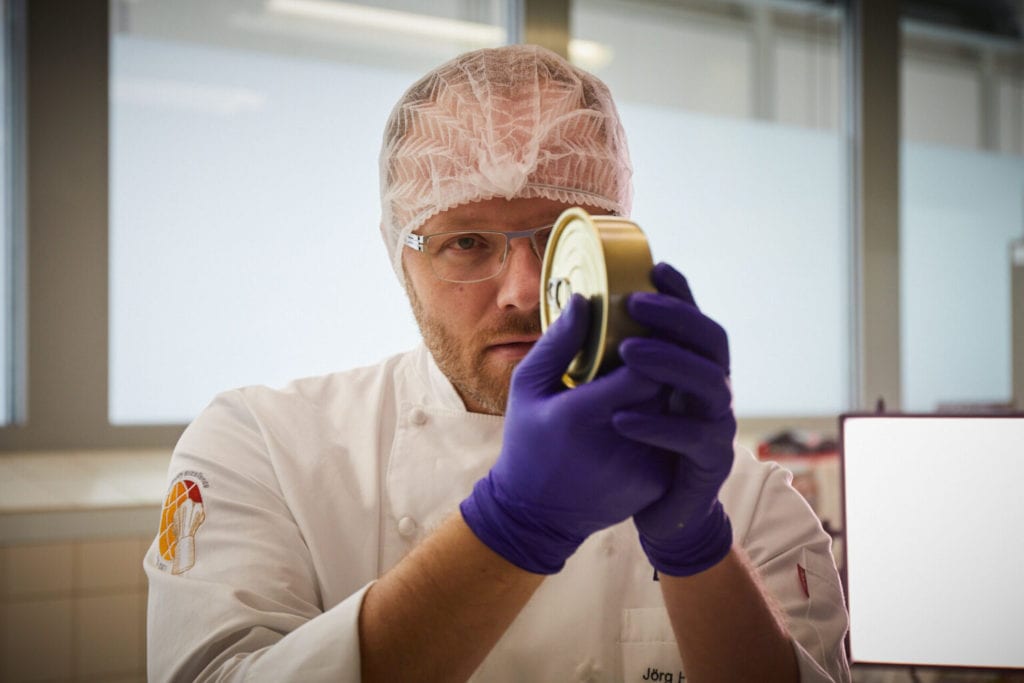LSG Group Prepares Space Food for Second Time
Share

LSG Group is applying some of the autoclaving benefits and lessons learned from its space food projects to improving meals served on planes.
LSG Group’s Global Culinary Excellence team will soon be cooking special “bonus” meals for European Space Agency (ESA) astronaut Mathias Maurer to take to the International Space Station (ISS).
In addition to standard menus, astronauts may bring along some personally selected dishes and snacks to remind them of home. On the ISS, these special meals are often shared with crewmembers from other countries as well.
In a twist on the regular meal choice process, in advance of Mauer’s 2021 trip to the ISS, ten restaurants from the German region he hails from, Saarland, are in a competition to have their special “Maurer menu” sent to space. Sample dishes include German ravioli filled with lamb sausage, lentil mousse with a frogs’ legs bonbon and a chicken breast roulade.
Public voting runs through November 7, 2020. And during a November 21 TV broadcast, a panel of judges will taste the three dishes with the most votes. Once the judges make their choices, LSG Group will step in to prepare the meals for space travel, along with a surprise two-course menu prepared by Michelin-starred chef Cliff Hämmerle. Maurer will not taste any of the dishes before opening the canned meals in space.
To help ensure that the meals will taste great long after liftoff, LSG Group implements autoclaving, a sterilization method that uses high-pressure steam. The technology, which LSG Group used in 2018 to prepare “bonus meals” for ESA astronaut Alexander Gerst on the “Horizons” mission, extends meal shelf life up to two years without any cooling. It also leaves intact more vitamins and nutrients than other long-term food preservation methods.
LSG Group is applying some of the autoclaving benefits and lessons learned from its space food project to improving meals served on planes.
“The product range we can offer will grow and we will be able to offer healthy food full of nutrients and vitamins,” said Jörg Hofmann, head of Global Culinary Excellence at LSG Group. “That is especially interesting for the hygiene demands we face in the new normality. At the same time, the amount of waste will shrink due to the longer shelf life.”
For a few months back in 2018, Lufthansa’s business-class passengers on long-haul flights from Germany could order one of the LSG Group space meals– chicken ragout with mushrooms – from the in-flight menu. But an LSG Group spokesperson says there are currently no plans to do the same for the meals the company will prepare for the ISS in 2021.


